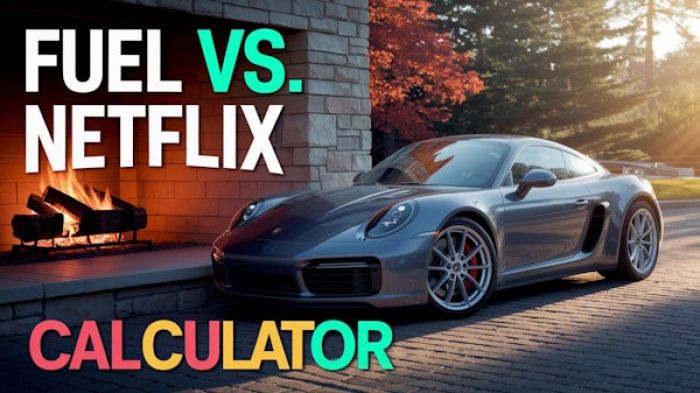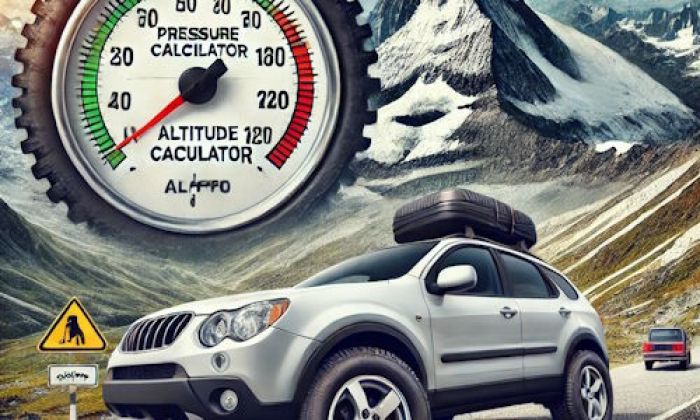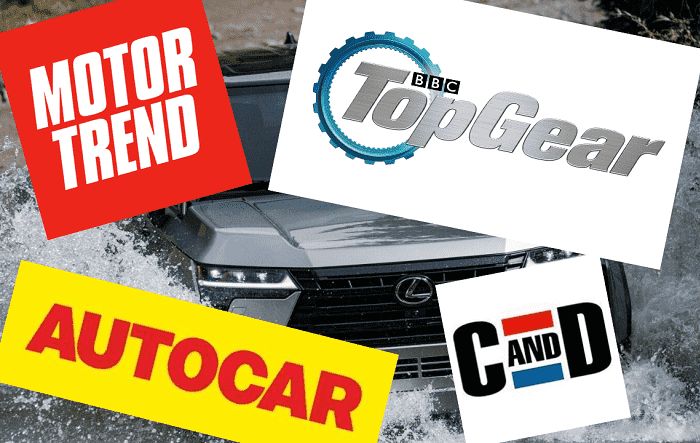Modern cars have literally dozens of partially independent electronic systems governed by a separate control module or computer. These systems control everything in your car, starting with the engine and finishing with the position of your seat.
A lot of control modules are simple electronic units with smart chips and several other parts installed in a small box. They are very vulnerable. They are afraid of almost anything including water, vibration, and even aging.
.jpg)
In this article, I will tell you about the issues with various control modules that you can find in modern cars. I will also give you links for further investigation.
ECM - engine control module
The engine control module is also often called an engine control unit. This unit controls everything in your engine like RPM, fuel supply, air supply, exhaust, firing cylinders, position of your crankshaft and camshafts, etc.
ECUs can't be swapped from car to car. They need to be programmed if bought used. Also, one of the biggest questions is how to reset the engine control unit. You won't reset this part just by pulling some fuse. You need to choose one of two ways: disconnecting the battery for some time or using the scanner tool for a soft reset.
There are a lot of problems with modern ECMs. They tend to fail because of any water intrusion. Also, they may malfunction due to low or high voltage. It's not that hard to fry them if you mess with the electrical system. Also, the software may be bad.
Here's how you can say that the ECM is in trouble: the vehicle seems to be glitching, functions work intermittently, very strange things happen without any system, and various warning lights and error messages go on. If this happens, you may need professional help to cope with the ECU problems.
ECU problems highlights:
- Module's importance:Extremely high
- Prone to failure:Yes
- Reasons for failure:Water, damage, software, low voltage, high voltage
- Ways to reset:Cut power, use scanner tool
- Sphere of control:Engine and emissions
- Symptoms of failing:Engine anomalies, CEL light, no start, random warnings
- Price to repair:$150 - $350
- Price to replace:$800 - $1,700
PCM - powertrain control module
Very often, the term PCM means just the same as the ECM. But in classic car industry literature, the PCM is another module that is used upon the engine control module and transmission control module to coordinate the work of these units.
Also, the PCM governs the work of all other parts and systems of the vehicle which can be called the parts of the powertrain.
Chrysler and Dodge cars are very well-known for PCM issues. I've written about the Dodge Caravan, Dodge Charger, Ram 1500, etc. Also, there were issues with the Magnum PCM as it was glitchy and faulty in almost all its generations and upgrades. This part is absolutely not a plug-and-play unit, so it will have to be programmed when installed new, or used.
Unfortunately, it's not that easy to locate and fix the problem with the powertrain control module. You can try to reset it - I've written about Ford and also GM PCMs and how you can try and reset them. But, in most cases, you will need professional help if you find them in trouble.
PCM problems highlights:
- Module's importance:Extremely high
- Prone to failure:Yes
- Reasons for failure:Water, damage, ECM problems, TCM problems
- Ways to reset:Disconnecting, scanner tool diagnostics
- Sphere of control:Powertrain (engine, transmission, AWD systems)
- Symptoms of failing:Powertrain anomalies, powertrain codes
- Price to repair:$180 - $300
- Price to replace:$750 - $1,650
TCM - transmission control units
While the transmission control unit only controls transmission, its malfunction can easily leave you stranded. These modules are usually pretty faulty in dual-clutch transmissions and they are quite expensive.
Any modern automatic transmission has a TCM (also called TCU sometimes). This is the computer that gets readings from all sensors and other electronic parts in the transmission and sends signals to other modules.
Actually, if it goes bad, there is only one thing you can do - replace this module. Also, good programming will be needed even if you buy the OEM unit.
TCM problems highlights:
- Module's importance:Extremely high
- Prone to failure:Yes (in DCT mostly)
- Reasons for failure:Water or oil, damage, age
- Ways to reset:Only scanner tool
- Sphere of control:Transmission and its functions
- Symptoms of failing:Transmission failure, transmission codes, no shifting
- Price to repair:No quick repairavailable
- Price to replace:$850 - $1,900
BCM - body control module
One more control module that is now presented in any car is the body control module commonly called BCM. It controls almost anything that's connected to the car body, interior, comfort functions, etc. For example, it controls the power seats, windows, wing mirrors, and also blind spot monitoring system, etc.
In a lot of cars, this module also controls the safety and anti-theft features that may also have their own control modules.
Unfortunately, resetting BCM is not that easy, so if you have issues with this module, it's a very good idea to go to a good shop and let a mechanic deal with it. Glitchy BCM will not allow you to drive your car comfortably.
BCM problems highlights:
- Module's importance:High
- Prone to failure:Nounless damaged by water
- Reasons for failure:Water, physical damage, connection problems
- Ways to reset:Only scanner tool
- Sphere of control:Car body, safety, comfort, settings, etc.
- Symptoms of failing:Errors and warnings, functions not working
- Price to repair:$150 - $300
- Price to replace:$550 - $1,100
ABS - anti-lock braking system
Your brakes in a modern car are enhanced by the ABS and EBD. These systems help you brake efficiently even if you don't know how brakes work. The ABS system prevents your brakes from locking up the wheel when you brake on a slippery road.
Also, ABS sensors, which are essentially the wheel-speed sensors, are used in a lot of other processes in your vehicle. A lot of other modules use their reading for traction control and other functions.
ABS modules can't be just replaced. They will have to be programmed and tested by a professional mechanic. Also, ABS modules are rarely faulty but the sensors very often require replacement.
Also, the modulator control unit in Honda is tightly connected to the ABS and VSA units.
ABS problems highlights:
- Module's importance:High
- Prone to failure:No
- Reasons for failure:Water, physical damage
- Ways to reset:No reset will help
- Sphere of control:ABS system
- Symptoms of failing:ABS light, no ABS available, traction control failure
- Price to repair:Repair almost impossible
- Price to replace:$350 - $900
SAM - signal acquisition module
Mercedes vehicles have a SAM module - this is the system that acts as a router in the electronic control systems. It receives and routes certain signals from sensors and actuators to various control units. Its failure is pretty bad as a lot of functions in your Mercedes vehicle stop working immediately.
SAM problems highlights:
- Module's importance:High
- Prone to failure:No
- Reasons for failure:Age, damage
- Ways to reset:No reset will help
- Sphere of control:A lot of electronic features
- Symptoms of failing:Glitchy electronics, issues with warning lights and messages
- Price to repair:Repair is complicated
- Price to replace:$350 - $650
CAS - car access system module
In BMW and Mini vehicles, the CAS module is used to detect if the actual owner of the car is trying to start it. Usually, it's simple and works with recognizing the key. But if this module goes bad, you will not be able to start the car whatever you do. Unfortunately, it can go bad just because of age or bad connections.
CAS problems highlights:
- Module's importance:High
- Prone to failure:Yes
- Reasons for failure:Age, connection, physical damage
- Ways to reset:Noway to reset
- Sphere of control:Verifying the proper key
- Symptoms of failing:No start
- Price to repair:Repair is impossible
- Price to replace:$800 - $1,200
TBC - trailer brake controller
A trailer brake controller (also called a trailer brake module) is a special simple computer that operates the lights, brakes, and other functions in your trailer. It doesn't fail that often, so it's hard to find any stats about it that would help us understand the common reasons and possible ways to fix it.
Unfortunately, when the trailer brake controller fails, there are other things that may happen like random unexpected codes and warnings in your vehicle. In most cases, this module fails when it's initially faulty and it requires replacement only.
TBC problems highlights:
- Module's importance:Low
- Prone to failure:No
- Reasons for failure:Design flaw
- Ways to reset:Noway to reset
- Sphere of control:Trailer functions like brakes and lights
- Symptoms of failing:No trailer functions are working
- Price to repair:Repair is impossible
- Price to replace:$150 - $600
TAC - throttle actuator control
All modern vehicles come with an electronic accelerator pedal. It means there is no physical wired connection between the gas pedal and the throttle body. The pedal has a special position sensor and the body has an actuator that makes it change the position of the flap. The TAC is the module that controls this process.
If there are problems with the TAC, you should verify first that the pedal position sensor and the throttle actuator are working well.
TAC problems highlights:
- Module's importance:High
- Prone to failure:No
- Reasons for failure:Sensor or actuator problems, water damage
- Ways to reset:Disconnecting battery
- Sphere of control:Throttle flap
- Symptoms of failing:Engine won't revup,only idling is possible
- Price to repair:Repair is complicated
- Price to replace:$350 - $800
About the authors
The CarAraC research team is composed of seasoned auto mechanics and automotive industry professionals, including individuals with advanced degrees and certifications in their field. Our team members boast prestigious credentials, reflecting their extensive knowledge and skills. These qualifications include: IMI: Institute of the Motor Industry, ASE-Certified Master Automobile Technicians; Coventry University, Graduate of MA in Automotive Journalism; Politecnico di Torino, Italy, MS Automotive Engineering; Ss. Cyril and Methodius University in Skopje, Mechanical University in Skopje; TOC Automotive College; DHA Suffa University, Department of Mechanical Engineering






Add comment